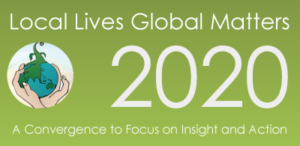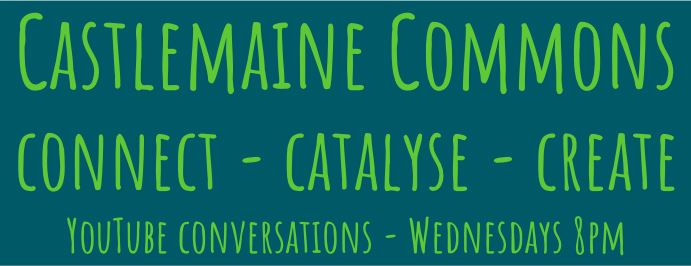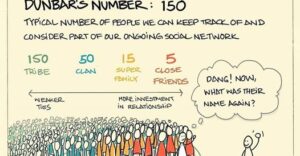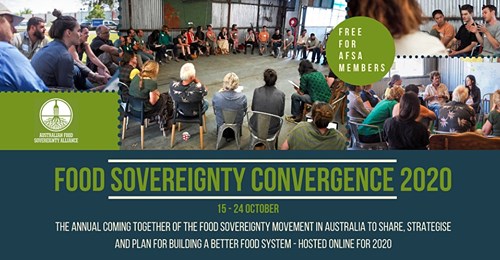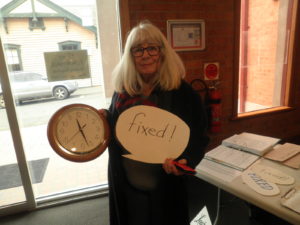Vincent Liegey and Anitra Nelson, Preface to Exploring Degrowth, 2020, Pluto Press
(See a Central Vic perspective on degrowth below)
WHAT: Intergalactic Fixit Clinic DLXIII (563) Lund/Malmö Sweden
WHEN: Saturday Oct 17, 2020 18:00 GMT/UTC (19:00 BST/20:00 CET/14:00 EDT/13:00 CDT/Noon MDT/11:00 PDT)
Facebook: https://www.facebook.com/events/727096391190509/
Instagram: https://www.instagram.com/p/CGJcqtNJ99r/
IMPORTANT: Please sign up well in advance at http://bit.ly/fixitcoachsignup to get the Zoom link.
We’re graciously hosted by our own Jessika Richter of Lund University’s International Institute for Industrial Environmental Economics (https://www.iiiee.lu.se/) For International Repair Day Jessika will open with a presentation on critical raw materials – what they are, what kinds of products and components you find them in, and why repair is essential.
Please encourage your family, friends and neighbours to sign up with things to fix at http://bit.ly/fixitcheckin. We can look at large things like dishwashers, TVs and furniture now.
-Please join the Global Fixers Google Group at https://groups.google.com/forum/#!forum/global-fixers to participate in ongoing discussion about the items we’re seeing
-NEW: Please join the Global Fixers Discord Server as we deploy synchronous/asynchronous around-the-clock around the world repair: https://discord.gg/WZd4xWd
Rain, frogs and La Nina
It’s raining cats… and frogs Posted by Connecting Country, 8 October, 2020 (https://connectingcountry.org.au/)
Rain is one of the most talked-about topics in central Victoria, usually due to the fact we don’t get enough of it most seasons, or the seemingly endless droughts over the past decades. However, the tides have recently turned, with the Bureau of Meteorology (BOM) officially declaring a La Nina weather pattern for spring and summer 2020 for eastern and southern Australia. The rainfall in central Victoria so far this spring has been reflective of a La Nina, with tropical airflow from northern Australia bringing large bands of rain to our region. If you haven’t already heard the chorus of frogs calls in every gully, garden, creek and dam, you soon will.
Frogs can be difficult to see, but much easier to hear, especially in the evening, which leaves people to wonder: what frog is that? Connecting Country encourages our community to use the FrogID App for assisting with the identification of tricky frog calls of our region. FrogID is Australia’s first national citizen science frog identification initiative – a project led by the Australian Museum in partnership with Australia’s leading natural history museums and IBM. Anyone can download this free app to their smart phone or device. You can use it to create a profile, record frog calls and match your calls to the frog calls on the app, then upload your records to the Australian Museum frog experts for species verification.
One reasons to use the FrogID app is to ensure that all frog records are verified prior to entering records into the Atlas of Living Australia (ALA), the largest database of flora and fauna records in Australia. Records entered directly in the ALA are not verified, and it was recently discovered that there were some incorrect records of frog species entered in the Mount Alexander region. Another reason to use the FrogID app is – it’s fun!
To download the FrogID app – click here
There is so much to learn about frogs and how we can help them continue to play their important roles in our ecosystems. We recently discovered an excellent article about frogs and where to see them by the Australian Broadcasting Corporation (ABC). It includes some great facts from the leading experts in this field. Please enjoy the article reproduced below, which originally appeared on the ABC website. To view the original article – click here

‘Break the chain’ dance for family violence prevention
The Mount Alexander Family Violence Prevention Network (MAFVPN) is organising 16 days of prevention of violence against women activism activities 2020. Each year, from 25 November (International Day for the Elimination of Violence Against Women) to 10 December, International Human Rights Day, the 16 Days of Activism campaign calls for action against one of the world’s most persistent violations of human rights – violence against women. During the 16 Days of Activism, people around the world unite to raise awareness about gender-based violence, challenge discriminatory attitudes and call for improved laws and services to end violence against women for good.
Due to popular demand and its inspiring and empowering impact the “Break The Chain” Dance is back this year as part of our 16 days of activism activities!
2020 has been a challenging year for families.We recognise that many of our community have been at increased risk of gender based violence during this time. Now more than ever people need to feel connected and supported. Break The Chain, is a powerful campaign and one that unites us through movement and music.
16 days “Break The Chain” Zoom Dance Classes . We look forward to dancing with you all and others as part of the global “Break The Chain” dance movement! No dance experience needed.
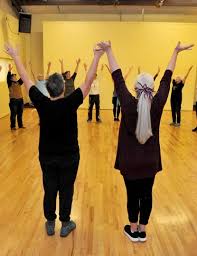 We are starting with two zoom classes Tues 27th Oct 1.30-2.30pm and Thurs 29th Oct 6-7pm and will organise two more in November seeing what time slot suits dancers best.
We are starting with two zoom classes Tues 27th Oct 1.30-2.30pm and Thurs 29th Oct 6-7pm and will organise two more in November seeing what time slot suits dancers best.
Sas, our dance teacher, is hoping to choreograph a couple more dances to build on our dance routine.Those that register for the dance classes will receive a reminder email nearer the time reminding them of the zoom link. For those who cannot attend the zoom classes the classes will also be recorded and uploaded either onto You tube or the MZ studio website. For those who didn’t have an opportunity to dance last year here is a video of the Kyneton performance to whet your appetite: https://www.facebook.com/abccentralvictoria/videos/506317363561092/
For more information: contact Carolyn Neilson- mobile 0439550904
Our 16 days programme. A flyer will be developed and circulated soon but an indicative programme is:
- Launch of 16 days of activism Art exhibition (title tbc) Phee Broadway Foyer Friday 27th Nov 5-7pm with “Break the Chain” dance as prelude;
- Art exhibition including The House That Jill Built exhibition ( see www.denisejmartin.net), Portraits for Respect, “Walking in their shoes”, family violence lived experience narrative art installation, other art pieces created by local artists, Little People art installation reflecting on the impact of family violence on children;
- Sunday 6th Dec, Victory Park, 11am-12 midday -Vigil honouring those who have died as a result of family violence in Australia this year, Break the Chain dance, portraits for respect (community members are invited to have their photographs taken holding a hand written message supporting gender equality and or challenging gender based violence against women) and distribution of marigolds (orange colour in solidarity with the 16 days moveement) or marigold seeds;
- Video montage of different Prevention of Violence Against Women videos rolling in Castlemaine Library, and other venues during 16 days;
- Social media campaign.
Hepburn Wind celebrates 10 years
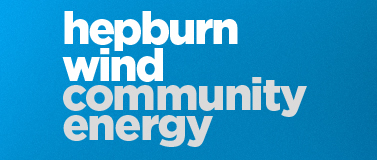
It’s 10 years since ‘turning of the sod’ at Leonards Hill to build Australia’s first community-owned wind farm and we’re excited for a new chapter, as we submit our planning permit for the proposed solar farm this month.
This year marks the beginning of a new chapter for Hepburn Wind – a planning permit for a 7.44MW solar farm and 10MWh battery storage facility to be co-located at the wind farm. After years of planning and pro-bono contributions from various consultancies and grants to de-risk our development, we will be very excited to see this document submitted later this month.
REFCL upgrade currently under construction This week we started construction works for the Rapid Earth Fault Current Limiter (REFCL) upgrade. Bushfires ignited by powerlines contributed to the deaths of Victorians during the 2009 Black Saturday bushfires. In response to this, the Victorian Government established the Powerline Bushfire Safety Program to implement recommendations of the Victorian Bushfires Royal Commission. Deploying REFCLs is a critical component as they have been demonstrated to be highly effective in managing powerline faults by rapidly limiting the energy release on high voltage 22kV powerlines.
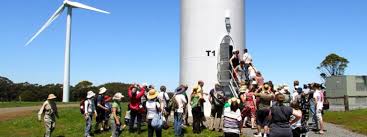
However, REFCLs will also change the voltage on the grid and therefore generators like Hepburn Wind need to upgrade their equipment to withstand these changes. We’re very grateful to the State Government, who enabled our upgrades through their High Voltage Customer Assistance Program (HCAP).
We will complete the necessary asset hardening and upgrades on-site by the compliance dates in November, in time for bushfire season. The wind farm will be switched off for periods of time for construction and commissioning of the new equipment during October and November. It is anticipated it will take six weeks to complete and you may see cranes and construction traffic during this time.
New Energy Jobs Fund Round 5 success! We are also excited to announce that we have been successful in our application to the New Energy Jobs Fund Round 5, for our project “Hepburn Wind Micro-PPA model and Z-NET in Action”. In essence, this project will help Hepburn Wind connect customers more closely to the renewable energy we produce. Through Z-NET in action, we will connect community members with technology that gives clear information and greater control over household energy consumption and generation (WattWatcher). We’ll also be conducting an education campaign encouraging community members to engage with their energy system and connecting them with our local Hepburn Z-NET projects.
A Central Vic perspective on degrowth

Anitra Nelson’s co-authored book with Vincent Liegey Exploring Degrowth: A Critical Guide is getting a lot of attention. Copies are available through Pluto Press, the libraries local bookshops. You can find links and further details of recordings of recent events, podcasts and media here — https://anitranelson.info/exploring-degrowth/
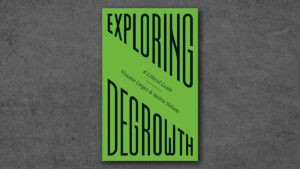
Electric vehicle bulk-buy in central Victoria
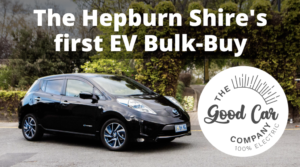
The Good Car Company’s EV Bulk-Buy will be launching virtually in November. Hepburn Wind would like to say a big thank you to everyone who has already registered and for your patience through this time.
We’ve pulled together some FAQ’s to offer members and supporters a concise overview of the new virtual model, the program’s duration, eligibility and more. If you are eligible and interested, you can register here.
The Bulk-Buy will run for four weeks through November. We understand that many from our community are experiencing financial hardship right now so we’re also planning a second round next year for anyone who can’t participate at the moment.
At this time, we have close to 200 EOIs so eligibility will be prioritised to Hepburn Wind members, Hepburn Shire residents and neighbouring shires. Participants will be asked to prove that they meet the eligibility criteria below. These criteria are listed in order of priority and will be used to prioritise participants, should we have greater demand than supply.
- Hepburn Wind members across Australia- *please note that if you are outside the local area you may incur increased transport fees.
- Immediate family members of members i.e. where a partner may be a member and the respective partner wishes to participate.
- Community energy group’s that are a member of Hepburn Wind i.e. where the community energy group is a shareholder.
- Hepburn Shire residents i.e. you own, rent or your car is registered here.
- Neighbouring LGAs to Hepburn Shire of Ballarat, Mount Alexander, Macedon Ranges, Central Goldfields, Pyranees and Moorabool.
Hepburn Wholefoods Collective
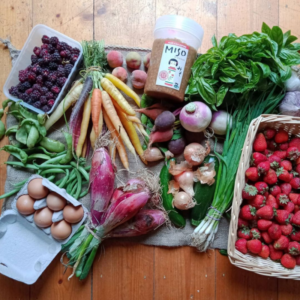
Hepburn Wholefoods Collective is a not-for-profit community group which aims to support a vibrant and secure community food system. We sell wholefoods in the Daylesford and Hepburn area to provide a connection between growers and their community.
Our stocked goods are sourced from the most local farms we can buy from, and our preference is to buy organic and biodynamic food straight from them.
Community members pay an annual fee and then bring their own containers to stock up their pantry. The shop is staffed by volunteers and is usually open four days a week for two hours at a time.
Early spring can be one of the trickiest times for sourcing fresh veg in our region, but lucky for us, our local farmers have got it all sorted. Arriving in the shop shortly will be some new season asparagus, lettuce and seedlings from Florian at Mt franklin organics, potatoes from Angelica organic farm in Glenlyon and more of the incredibly popular oranges and avocados from Andrew Jones near Mildura. Check out our full stock list here.
Veggie boxes are also available, stocked by local organic farmers: veggie box orders
Seed Libraries- Castlemaine and Daylesford
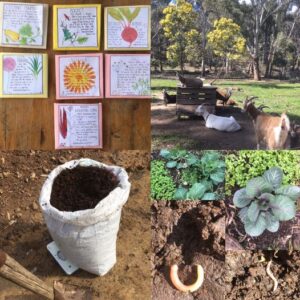
Springtime in the garden is so exciting – there’s nothing like planting a seed and watching it grow. We know there are many keen gardeners in our town, from absolute beginners to experienced green thumbs – and our gardens are benefiting immensely from our time in lock down! If you’re keen to grow some vegetables, herbs or flowers this year, pop in and borrow some seeds from the Castlemaine Seed Library, housed at Castlemaine library, (when you collect your reserves) or from Daylesford Seed Library, housed at Hepburn Wholefoods Collective.
The process is easy, and free – simply register what you’ve borrowed with us, and grow it at home – when it goes to seed at the end of the season, save some of the seeds and return them to the library! (It’s a long term loan!)
More about the Castlemaine Seed Library here.
More about Daylesford Seed Savers: https://www.facebook.com/Seedkeepers/
An epidemic of belonging starting in Bendigo
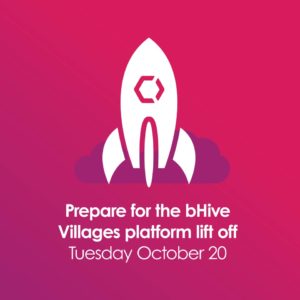
The bHive Villages platform is coming on October 20th. Villages connects groups of neighbours together to build community, run events, communicate with each other and share stuff and skills. Villages is real sharing. It’s gifting, not consumption. You can share tools, furniture, veggies, fruit and your time, skills and meals.
When you subscribe to Villages you set up your personal Village. You can add people who live within 1km of your house to your Village (as long as they consent). You can then add your friends from across Bendigo. These people will see your posts, shared items and events and you will see theirs.
You can also set up and join Community Groups that operate across Bendigo. This could be the Toy Library, Bendigo Foodshare and the Bendigo Sustainability Group or interest groups like the yarn bombers or a card playing club. Within these groups you can post, message, set up events and plan things together.
Villages aims to create an epidemic of belonging. It is a digital tool that brings us together. This is important because our modern society is socially isolated and lonely, which is having a huge impact on our health and wellbeing. The early 2000s research of Professor Lisa Berkman showed that having strong connections in our local community is better for our health than giving up smoking, alcohol and fat, and adds ten years to lifespan. Relationships built over the side fence and up the street can last a lifetime. We need to be together.
When you subscribe to Villages you can also choose to become a member and an owner of bHive Cooperative Bendigo. You’ll have the same ownership share as every other member, meaning that we will own and manage bHive together. With bHive, there will be no advertising, no selling of data and no bots.
Over the last 18 months bHive Directors have been involved in numerous international and local conversations with developers and platform co-operative specialists to source a reliable and flexible software solution that will support bHive Villages.
Villages is a foundational element of the bHive that once in place can be built upon. Future applications that will plug into Villages will include cooperative sharing enterprises like car sharing, stuff sharing, skills sharing, power sharing and more.
Woodland Musing- landscape change in our region
Geoff Parks’ Natural Newstead blog is much loved by many bird watchers across central Victoria. In September Geoff posted a blog reflecting on landscape change in the Newstead district and more generally across the box-ironbark country. Geoff’s musings, along with magnificent photographs are worth a read. Go to his Natural Newstead blog and search for woodland musings.
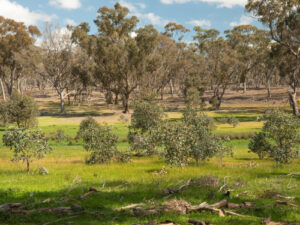
Geoff made three overarching observations:
- Significant areas of farmland, prime grazing land last century, are now largely de-stocked and actively regenerating – especially with eucalypts and native grasses.
- This farmland sits within a mosaic of ‘bush’ – forest and woodland, much of which is public land in varying states of recovery. The legacy of repeated clearing (many areas were harvested for timber multiple times since the 1850s) is often reflected in regenerating eucalypt thickets where the stem density may be 10 to 100 times greater than it was pre-clearing.
- Bird populations know what’s going on … there are distinct patterns of species richness and abundance that reflect the past history of land use and management.
For more of Geoff’s observations go to: https://geoffpark.wordpress.com/2020/09/11/woodland-musing/
Food for Thought
- The Right to Repair: The Bower GM Guido Verbist has written a piece on the importance of fostering the Right To Repair culture within Australia. A Right to Repair for Australians will help our waste crisis and assist with the longer-term transition to a circular economy. Read More About The Right To Repair in Australia…
2. Indigenous plant use on-line booklet
3. The Prime Minister and the dung beetle– Saturday Paper podcast with Don Watson
https://7ampodcast.com.au/episodes/the-prime-minister-and-the-dung-beetle
4. Emergence magazines- a series of podcasts on Language Keepers- about language loss and revitalization, based in California
There are approximately seven thousand languages in the world today; of these, the majority originated with, and are spoken by, Indigenous peoples. Up to half of the world’s languages are oral, with no orthography, no dictionaries. Knowledge is passed from person to person, through words and stories that formed and evolved alongside the places in which they have long been rooted, as diverse as the ecologies from which they come. Though it’s difficult to establish an exact number, it is thought that thousands of languages have disappeared from the Earth in just the last few hundred years, as the majority of the world’s population increasingly speaks only a handful of dominant languages. Half of all languages that exist today are likely to disappear by the end of this century, according to UNESCO.
What is lost when a language disappears? Languages arise from and are woven into the diverse ecologies of the living world. Many Indigenous communities around the world have developed traditional ecological knowledge (TEK) through generations of intimate contact with their lands. These bodies of knowledge express culturally specific and empirical knowledge of the processes of ecosystems, medicinal plants, and the conditions required for ecosystems to remain in balance. For Native communities, language and land are entwined.
5. Climate Change and Infectious Diseases: From Evidence to a Predictive Framework
6. The Pall Of Our Unrest- TERRY TEMPEST WILLIAMS READING HER ‘OBITUARY FOR THE LAND.’ https://mountainjournal.org/terry-tempest-williams-says-it-time-to-rally-for-nature-and-country
7. What if Local and Diverse Is Better Than Networked and Global?
Helena Norberg-Hodge (Local Futures) has been arguing for localism since the 1970s, but the pandemic is making the Australian activist-scholar’s ideas more relevant than ever. This piece provides a glimpse of the world through Helena’s eyes, opening the window onto a radically different future. In light of the coronavirus crisis, more and more people are thirsting for the connection – with Nature and with others – that is at the heart of this vision. As Helena points out, community and local economies “just make sense”.

![[ Random Image ]](https://leanganook.org/images/image_13.jpeg)

